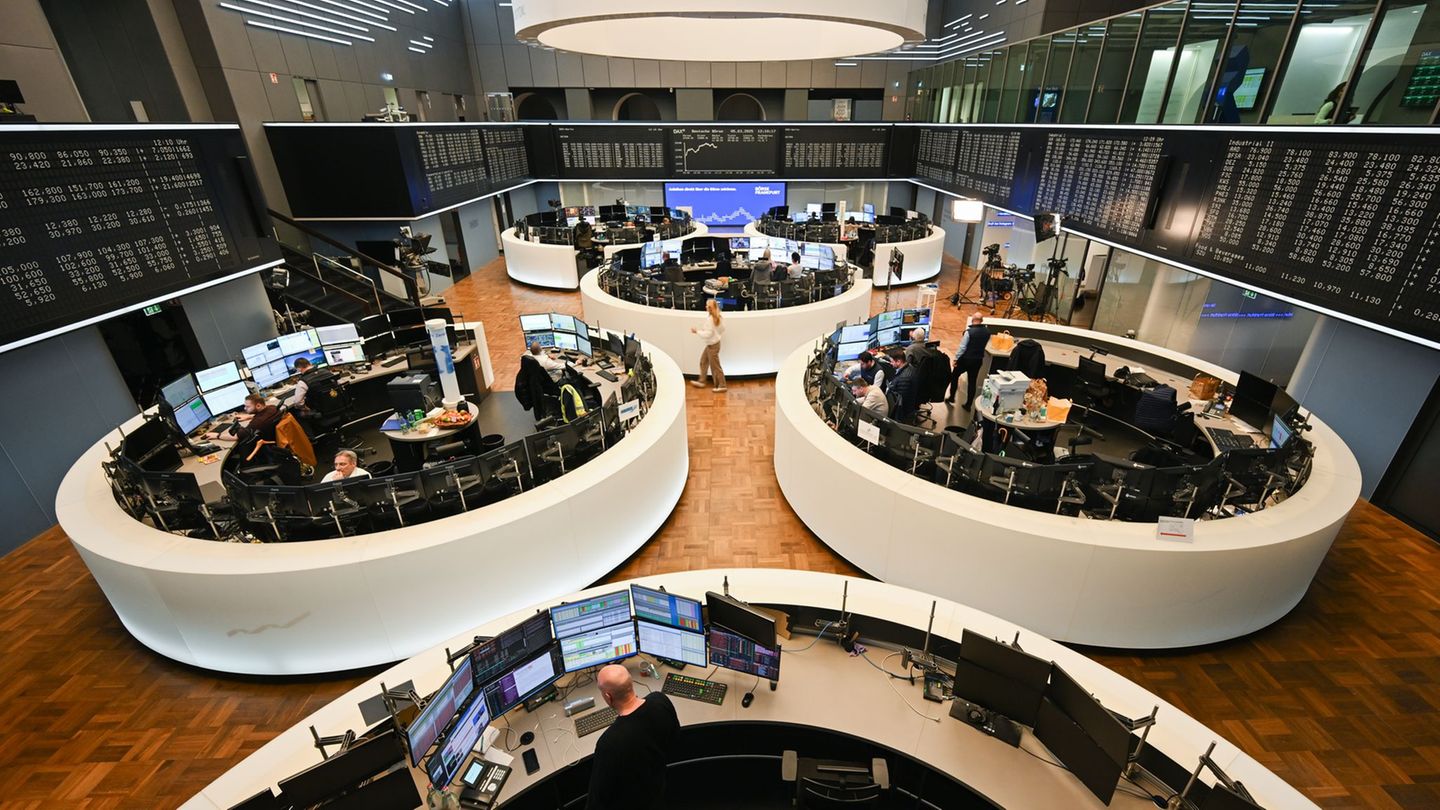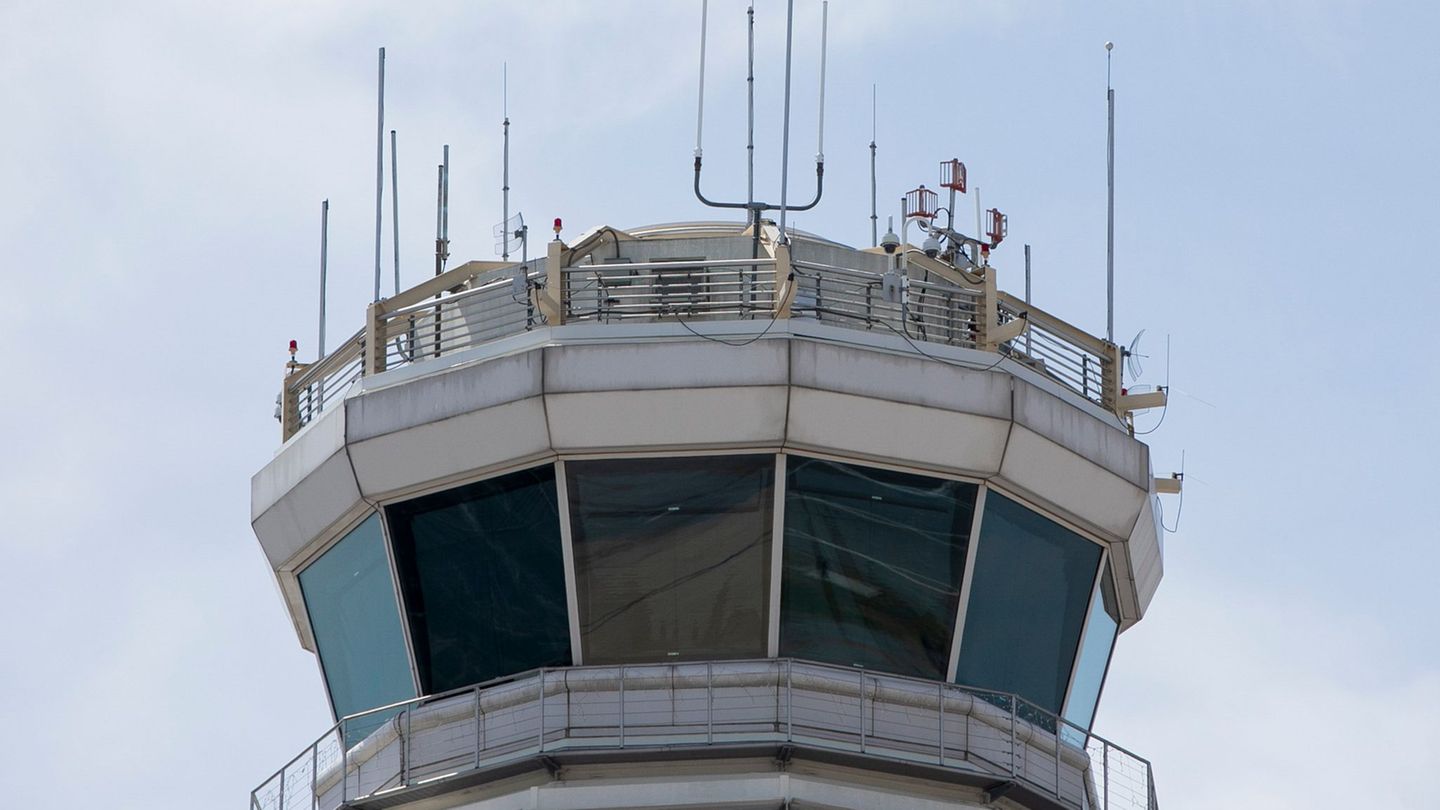Russian banks are to be excluded from the international system Swift. But what does that mean? Questions and answers.
It is a step that people in Germany will also feel: Federal Chancellor Olaf Scholz gives in to international pressure and supports the exclusion of Russian banks from the Swift financial communication system.
Economic experts expect drastic effects on Russia. But in Germany, according to Foreign Minister Annalena Baerbock, “collateral damage” is to be feared, including for the energy supply.
What has now been agreed?
Germany, the United States and other Western partners agreed on Saturday evening to exclude certain Russian financial institutions from Swift, along with new sanctions against Russia’s central bank. According to official information, all Russian banks that have already been sanctioned by the international community are affected. In addition, other Russian banks are to be added if necessary. The federal government announced that the institutes should be cut off from international financial flows.
How does Swift work and how does the exclusion work?
Swift – the abbreviation stands for “Society for Worldwide Interbank Financial Telecommunication” – provides the technical infrastructure so that financial institutions can communicate securely with one another across national borders. This applies, for example, to money transfers, securities or precious metal transactions. According to Swift, more than 11,000 participants in over 200 countries use the service.
In principle, banks can also communicate without Swift, only much more cumbersome, for example by direct contact via telephone or e-mail – and at higher costs. This can slow down the flow of goods because companies are then no longer able to pay for imports or post income for exports. The exclusion of Russian banks from the system severely restricts them in international transactions. It amounts to an exclusion from the globally networked financial system. In Russia, reactions from citizens were at least visible at the weekend: Many went to ATMs to withdraw money.
What are the consequences for Germany?
Foreign Minister Baerbock described “massive collateral damage” on Thursday – at a time when Germany was hesitant to support the Swift exclusion of Russian banks. This, the Greens politician warned on ARD, could result in energy imports no longer being financed. You have to see “that we don’t choose instruments that Putin laughs about in the end because they hit us much harder”.
Baerbock pointed out that 50 percent of hard coal imports come from Russia – without it, German coal-fired power plants could not continue. “If the electricity didn’t work properly for us for a few days, then we would have a real problem,” she said. Germany is also extremely dependent on Russia for gas imports. Russia could also impose countermeasures.
How and why is the West still doing this?
The German government saw itself under great international pressure to draw the sharpest sword of sanctions to date in view of Russian President Vladimir Putin’s war of aggression against Ukraine. How exactly the negative consequences for Germany should be mitigated was initially unclear.
“We are working on decoupling Russia from the Swift system in such a way that collateral damage remains as small as possible,” said Federal Justice Minister Marco Buschmann (FDP) on Twitter. Baerbock and Economics Minister Robert Habeck (Greens) also spoke of limiting collateral damage so that the step “hits the right people”. It is about a “specific and functional limitation of Swift”. Exactly where the limitation lies and how it mitigates the negative consequences initially remained open.
What other sanctions are there?
Shortly after Putin’s attack on Ukraine on Thursday, both the US and the EU decided on comprehensive sanctions to damage the Russian economy. The EU sanctions came into force on Saturday night. They restrict refinancing options for the state and selected private banks and companies, including Alfa Bank, Bank Otkritie, Bank Rossiya and Promsvyazbank. In addition, the EU restricts the export of strategically important goods for the transport and energy sectors. Putin and his foreign minister Sergey Lavrov were put on the EU sanctions list, thus freezing any assets in the EU.
In addition, the assets of the Russian central bank are to be blocked, as EU Commission chief Ursula von der Leyen said. «Your transactions will be frozen. And we are taking away the central bank’s ability to use its assets internationally.” This is intended to prevent Russia from using its state reserves to finance the war. Everything together is intended to isolate the Russian economy internationally. This is also likely to further weaken the ruble and bring hardship to people in Russia.
However, the economic sanctions also mean billions in lost revenue for European companies. EU officials have not wanted to put a precise figure on this in the past few days. Ifo boss Clemens Fuest expects that the sanctions will “cost a lot” in the West, but will hit the Russian economy far harder, as he tweeted: “There will be shocks in the financial markets, but there is no other way.”
Source: Stern
David William is a talented author who has made a name for himself in the world of writing. He is a professional author who writes on a wide range of topics, from general interest to opinion news. David is currently working as a writer at 24 hours worlds where he brings his unique perspective and in-depth research to his articles, making them both informative and engaging.




